- Home
- Rick Mofina
In Desperation
In Desperation Read online
In Desperation
Rick Mofina
Eleven-year-old Tilly Martin is dragged from her suburban bedroom. Her mother, Cora, pleads for mercy but the kidnappers are clear: if they don't get their $5 million back in five days, Tilly dies. If anyone contacts police, Tilly dies.
Journalist Jack Gannon's estranged sister, Cora, disappeared without a trace decades ago. Now she is frantically reaching out to him for help. Cora tells him about the shameful mistakes she's made – but she guards the one secret that may be keeping her daughter alive.
A twenty-year-old assassin, haunted by the faces of the people he's executed, seeks absolution as he sets out to commit his last murders as a hired killer.
In the U.S. and Mexico, police and the press go flat out on Tilly's case. But as Gannon digs deeper into his anguished sister's past, the hours tick down on his niece's life and he faces losing a fragment of his rediscovered family forever.
Rick Mofina
In Desperation
The third book in the Jack Gannon series, 2011
This book is for
Lou Clancy,
who gave me my first job as a reporter.
DAY 1
1
Phoenix, Arizona, Mesa Mirage
Cora Martin was propped against two pillows in her bed when she heard a faint noise and put her book down.
Was that Tilly?
Her daughter was asleep down the hall.
No, that sounded like it came from outside.
Cora listened for half a minute. Everything was quiet. She dismissed the noise as a bird or the Bannermans’ darned cat. The clock on Cora’s night table showed the time: 12:23 a.m. She returned to her book. After reading two pages she began drifting off when she heard another strange sound.
Like a soft murmur. This time it came from a far side of the house.
What the heck is that?
Cora got up to investigate, groaning. She had to go to work in a few hours. She needed to get some sleep.
Wearing only a cotton nightshirt, she padded down the hall to Tilly’s door. It was partially open, as usual. Her eleven-year-old daughter was asleep on her stomach. One foot had escaped from the sheets. Cora moved to her bedside, adjusted it then took in the room: Tilly’s stuffed toys, posters of Justin Bieber and Cora’s favorite-the drawing of two happy stick figures holding hands, titled Mommy & Me.
Cora smiled.
Soft light painted Tilly’s face. She was more than a beautiful child to Cora; she was her lifeline, her hope and her dream.
I love you more than you’ll ever know, kiddo.
She stroked Tilly’s hair, then went to check the rest of the house. Cora had rented the small, ranch-style bungalow at an amazing rate from a widowed Realtor who didn’t hide her maternal fondness for single working moms and their daughters.
Cora checked the front and back doors then the windows in each room. Nothing was amiss. She reconsidered what she’d heard. It had kind of sounded like someone walking around the house.
She thought of calling the police but pushed it aside for now.
Should I go outside?
It would be better to check the alarm system. She went to the console on the wall to inspect the indicator lights. Cora wasn’t afraid to check the yard. This was Mesa Mirage, almost hidden among the larger east valley suburbs of metropolitan Phoenix. Mesa Mirage was a tranquil community of retirement villages and golf courses. It didn’t have its own police department, but it was served by the County Sheriff’s Office, supported by volunteer posses and was safe.
Almost crime-free.
Everything was in order, according to the light sequence of the alarm system. Good. Cora was thirsty. She’d get a drink in the kitchen then crawl back into bed and sleep.
Finishing her water at the sink, she touched her fingers to her lips. She had forged a good life here and she would do anything to protect Tilly.
Especially from the monsters she’d buried long ago.
Cora’s attention shifted to the knock on her front door. Who could it be at this hour? Moving through the living room, she looked at the window and glimpsed two uniformed officers at the door.
Police?
She opened the door.
In the instant Cora absorbed their grave faces, half in shadow under the porch light, she was pricked by a twinge of unease.
Something was wrong.
Not the kind of wrong that accompanies a late-night visit by the police, but something darker. She had no time to ponder it.
“Sorry to trouble you, ma’am,” one of the officers said. “We’re checking on the welfare of residents here. Is everything all right?”
“Yes. Why?”
“Can you tell us how many people are in your home tonight?”
“Just me and my daughter. Why?”
As one of the officers took notes, a thousand points of concern flashed across Cora’s mind. She glanced to the street for a patrol car, finding a late-model sedan. She didn’t think the two men were with the county or the volunteer posse. She scanned their uniforms for a shoulder patch and found one. But since she really never encountered police, she was not sure if the officers were from Mesa, Tempe, Chandler or Gilbert.
“I’m sorry,” Cora said. “Who are you with?”
“We’re with the task force,” the first officer said. “Ma’am, are there any firearms in your residence?”
“No. I hate guns. What task force? What’s this about?”
“Earlier tonight, an inmate escaped custody, a convicted murderer. He was sighted in this area of the community.”
“Oh my God.”
“I’m afraid there’s a bit more to this. May we come in?”
“Yes, of course.”
Cora let the two men enter her home. Inside, the officers looked around Cora’s living room.
“Where’s your daughter located at this time?” the first officer asked.
“Down the hall, in her bedroom. She’s asleep.”
The officer nodded to his partner.
“We’ll check on her welfare.”
“But she’s fine.” Cora watched the second officer quietly enter Tilly’s room, while the first officer spoke to her.
“It’s routine,” he said, indicating the kitchen. “Let’s go there and I’ll explain.”
The first officer went directly to the sink over the kitchen window that looked out to Cora’s backyard. He pulled a pocket telescope from his utility belt, clenched one eye and gazed through it.
“The suspect is in the house directly behind yours, one row back.”
“I don’t understand.”
The officer turned to her and she noticed a scar running along his jaw.
“We’re here to help set up a perimeter for the SWAT Team,” he said.
At that point the second officer emerged, nodded to his partner and approached them at the sink.
“Ma’am?” The first officer offered Cora his scope. “Take a look. It’s the house with the pool lights.”
She was apprehensive.
“Go ahead.”
Her kitchen seemed to be closing in on her as the two officers now stood near. Was this a dream? She took the telescope, raised it to her eye, not sure what she was looking for when pain shot through her skull. Her hair strained her scalp, pulled by some force. Duct tape peeled, Cora’s mouth was sealed before she could cry out. The invaders moved her swiftly and silently to a kitchen chair, taping her ankles, her wrists and her chest to it.
Terrified, Cora looked down the hall.
The first man drew his face to Cora’s.
“Your daughter is fine. Look at me!”
Cora tried to talk.
“Are you going to cooperate so we can get through this quickly?” Cora nod
ded.
“We do not want to hurt you, or your daughter. Understand?”
Cora nodded.
“If you resist, we will kill your daughter in front of you.”
Cora sobbed against the tape.
“Do you understand? If you cooperate, you survive.” Cora understood.
“We know you work for Lyle Galviera at Quick Draw Courier.”
Cora nodded.
“I’m going to remove the tape and we’ll talk. If you scream, if you refuse to cooperate or if you lie, you and your daughter will die. Do you understand?”
Cora nodded and the second man yanked the tape from Cora’s mouth.
She gasped, swallowed and listened to the first man. “Lyle uses his company to distribute our product and move cash to be cleaned. Where is the money?”
“I don’t know what you’re talking about!”
“He stole five million dollars from us.”
“No! This is a mistake! Are you looking for drug money? Lyle’s not involved with drugs. I’ve got nothing to do with drugs. This is all wrong-it’s a mistake. Please leave us alone! I don’t know what you’re talking about!”
“We can’t find him. Where’s the money?”
For the next thirty minutes the invaders ransacked the house. What did they do with Tilly? They must’ve tied her down.
Or worse!
“Where is our money?”
“Did you hurt my daughter?”
“She’s not hurt. Where is it?”
“I told you this is wrong. This is a mistake!”
“Listen to me. You will find Galviera and tell him to return our money.”
Sobbing, Cora shook her head.
“This is a mistake. I don’t know anything about this.”
“You know. You do the books for his company.”
“No. No. I’m the office manager, the secretary. I know he left a few days ago for business in San Diego, then in Los Angeles.”
“He is not in California.”
“But I made the travel arrangements. Please, I don’t know what you’re talking about. Please leave us alone. Please. This is a mistake.”
“No mistake.”
The first man turned to his partner. After speaking in rapid Spanish to him, the man left the house and returned with a large suitcase they placed before Cora.
“Remember,” the first man said. “Do not scream.”
The second man went down the hall to Tilly’s room. Seconds later Tilly emerged, her mouth covered with duct tape, eyes popping with fear as they met Cora’s.
Tilly was in her pajamas with the unicorn pattern; her wrists were taped in front of her in a praying position as she hugged a hastily balled collection of items. Cora could see jeans, a pink shirt and white sneakers. Was that her toothbrush sticking from the heap? It was as if she were rushing off to a sleepover.
Fear twisted Cora’s stomach.
“It’s going to be okay, honey.” Cora tried to comfort her as the second man opened the large suitcase and positioned Tilly inside, bending her knees to her chest, then zipping her closed as if he were a magician preparing a trick.
“What are you doing?” Cora raised her voice. “Wait! No.”
The first man drew his weapon and pointed it at the bag where Tilly’s head would be, moved his finger to the trigger and turned to Cora.
“Have you forgotten your need to shut up and listen?”
“Yes, please, please don’t hurt her. I’m begging you.”
“If you do as we say, she will not be harmed. Understand?”
Cora nodded.
“We are taking your daughter with us.”
“No. Please!”
“Listen carefully. Lyle must return our money, or your daughter will die. And if you go to the police, your daughter will die.”
“Tilly, sweetie, everything will be okay. Do what they say. Tilly, I love-” Tape was replaced on Cora’s mouth.
“Your binding is not that tight. You should be able to free yourself in a few hours,” the first man said. “We will return your daughter unharmed after Lyle Galviera returns the money he’s stolen from us. He has five days.”
The men left with the suitcase holding Tilly, leaving Cora alone, bound to a chair, sobbing in her kitchen.
2
Ciudad Juarez, Mexico
An anguished cry rose from the morgue’s viewing room.
“Mi hijo! Mi hijo!”
Paula Chavez bent over the corpse of a young man in his late teens, her son, Ramon. Her face creased with pain. She stared into his open eyes then at the bullet holes in his tattooed chest. Helpless against the horror, she caressed his face and pressed one of his cold hands to her cheek.
It was evocative of Michelangelo’s Pietà, Jack Gannon thought, watching from across the room.
He turned to Isabel Luna, who had raised her camera to shoot several frames of Paula Chavez. At times, the priest and morgue workers had to steady the grieving mother, who was now childless.
Ramon was sixteen. He’d been Paula Chavez’s last living son.
She’d already lost two others to the violence this year.
The sorrow in the air was as biting as the smell of chlorine and the reek of death.
For much of the day, Gannon and Luna had been riding along with forensic experts and coroner’s staff, pinballing from homicide to homicide, when they had come to the fringe of a squatters’ village. Paula Chavez was in a ditch on her knees weeping at the crime scene tape near her son. A priest prayed alongside her while windswept garbage and desert dust enshrouded them.
The priest brought Paula to the morgue. A coroner’s van brought her son. Gannon and Luna had followed them here, where workers had set Ramon’s corpse on a table next to the bodies of six other people murdered across the city so far that day.
Now, after taking half a dozen pictures, Luna lowered her camera and indicated to the pathologist who’d granted access that they were finished.
Gannon and Luna stepped outside into baking heat as another coroner’s van delivered two more white body bags strapped to gurneys.
Another corpse, another coffin, another grave. Another day in Juarez, a battlefield in Mexico’s drug wars.
Welcome to Murder City.
Gannon slid on his dark glasses, and as he and Luna walked to his rented Ford he reflected on Paula Chavez. She lived in a shack and earned less than ten dollars a day running a tiny hamburger stand. She’d lost her husband and sons to the violence. Gannon thought of the pain carved into her weatherworn face, the agony of her cries, how she embodied the toll exacted by the carnage. These images burned into his memory. The impact of random cruelty. Throughout his years on the crime beat he hammered the heartache he bore for people like Paula Chavez into a quiet rage that he used to fuel his work.
Gannon was a journalist with the World Press Alliance, the global wire service headquartered in New York City. He’d been dispatched to Mexico to file features in the WPA’s ongoing series on the drug wars. Correspondents from the WPA’s Mexican, Central and South American bureaus had provided exceptional coverage, but his editor, Melody Lyon, wanted more for a new series.
“The cartel wars have been spilling into U.S., Canadian and European cities with increasing violence. We need to understand why this is happening,” Lyon had told him. “We need you to take WPA readers beyond the statistics, the corruption and the bloodbaths. Take us deeper. Find the human faces on all sides. Take us into the inferno.”
As part of his research before leaving Manhattan, Gannon had contacted Isabel Luna, a crime reporter with El Heraldo, a small family-run newspaper in Juarez known for its courageous reporting.
Few knew more about crime in the region than Luna.
Her father, the paper’s editor, had been murdered several months ago for exposing cartel ties to corrupt officials. His death left Isabel defiant and forged her determination to continue his crusade. She did not hesitate to respond when Gannon called in advance of his arrival.
“Call me when you arrive,” she said.
During their first meeting in El Heraldo’s hectic and cluttered newsroom, which had reminded Gannon of his campus paper in Buffalo, he told Luna of the stories he had in mind.
“I’d like to profile you.”
She blushed and a crooked smile nearly blossomed on her face. It waned when he told her of the other story he wanted to do.
“I want to write about cartel assassins, the young ones they train to be killers. I’d like to interview one. Do you think that’s possible?”
A somber look flitted across Luna’s eyes as she scanned the newsroom, focusing on nothing before inhaling slowly.
“It’s possible,” she said.
“Will you help me?”
She looked at him for a long moment before she said, “Yes.”
In the back of his mind Gannon suspected Luna had her own reasons for pursuing a story on cartel assassins. As with most murders in Juarez, her father’s killer had not been found.
Now, as they left the morgue, Gannon glanced at Luna, in the passenger seat studying her camera, reviewing the crime scene photos she’d taken that day.
“You got some nice stuff there,” he said. “You see anything that looks like an organized cartel hit?”
“No. Just everyday murders, low-level barrio gang members and Juarez drug dealers. It’s terrible to say, but it’s true.”
Luna called her paper to ensure her desk alerted her to any breaking stories as she and Gannon continued roaming the city.
He took in the sprawling metropolis. Juarez was a factory town with a population over one and a half million. It stood on the Rio Grande, across the U.S. border from El Paso, Texas, where close to eight hundred thousand people lived in relative safety and peace.
Gannon figured he had seen most of Juarez since he’d arrived three days ago. Or was it four? He’d filed news features but had yet to go beyond what had already been reported on the tragedy of the region.

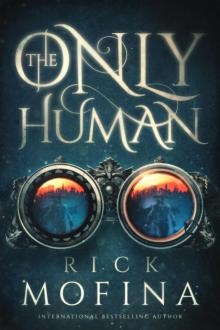 The Only Human
The Only Human Tom Reed Thriller Series
Tom Reed Thriller Series![[Tom Reed and Walt Sydowski 04.0] No Way Back Read online](http://i1.bookreadfree.com/05/tom_reed_and_walt_sydowski_04_0_no_way_back_preview.jpg) [Tom Reed and Walt Sydowski 04.0] No Way Back
[Tom Reed and Walt Sydowski 04.0] No Way Back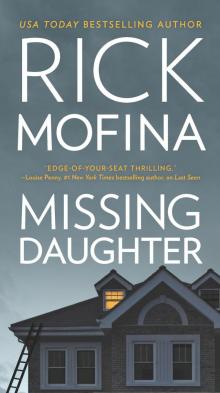 Missing Daughter
Missing Daughter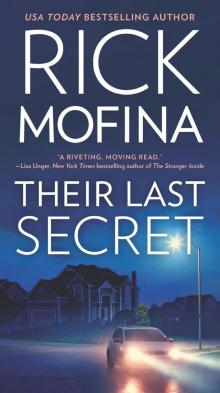 Their Last Secret
Their Last Secret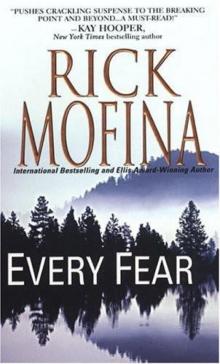 Jason Wade - 02 - Every Fear
Jason Wade - 02 - Every Fear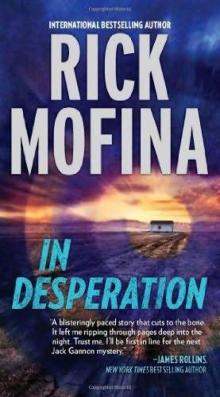 In Desperation
In Desperation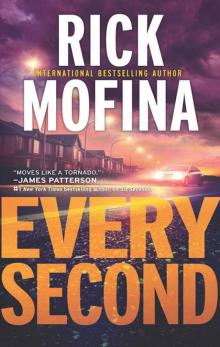 Every Second
Every Second Full Tilt
Full Tilt Search for Her
Search for Her The Last Pursuit
The Last Pursuit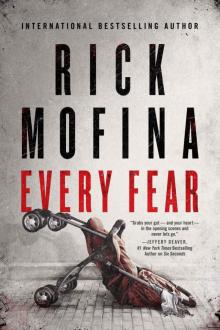 Every Fear
Every Fear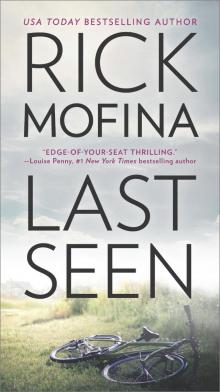 Last Seen
Last Seen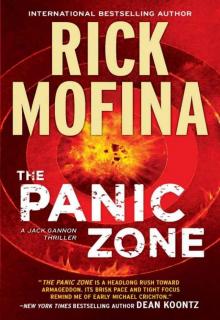 The Panic Zone
The Panic Zone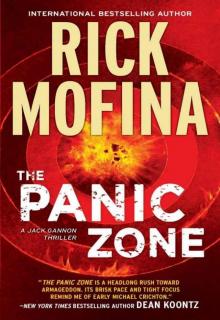 The Panic Zone jg-2
The Panic Zone jg-2 Free Fall
Free Fall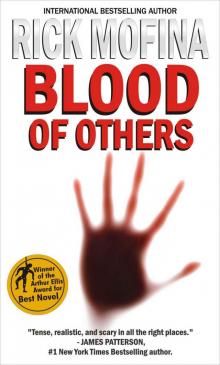 Blood of Others
Blood of Others![[Jason Wade 02.0] Every Fear Read online](http://i1.bookreadfree.com/i1/03/31/jason_wade_02_0_every_fear_preview.jpg) [Jason Wade 02.0] Every Fear
[Jason Wade 02.0] Every Fear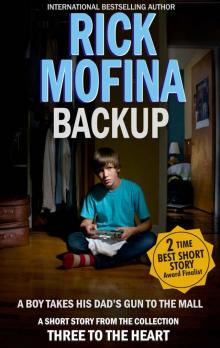 Backup
Backup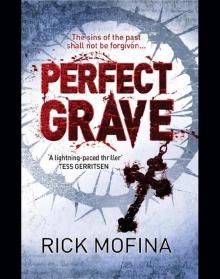 Perfect Grave
Perfect Grave Into the Dark
Into the Dark Whirlwind
Whirlwind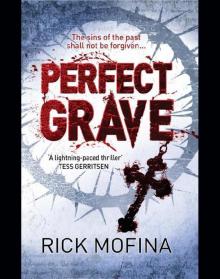 Perfect Grave jw-3
Perfect Grave jw-3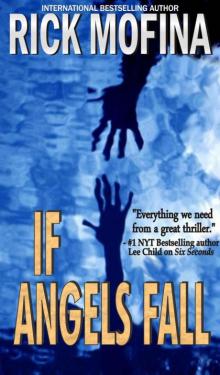 If Angels Fall (tom reed and walt sydowski)
If Angels Fall (tom reed and walt sydowski)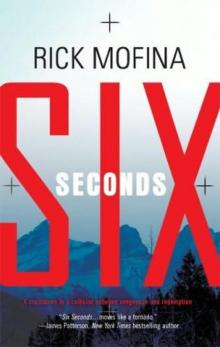 Six Seconds
Six Seconds If Angels Fall
If Angels Fall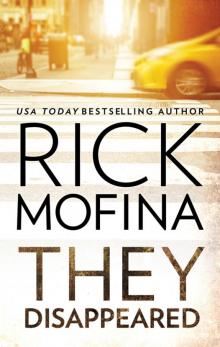 They Disappeared
They Disappeared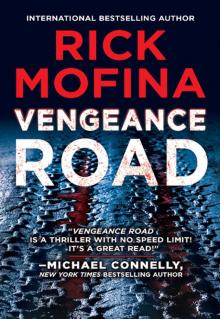 Vengeance Road
Vengeance Road Before Sunrise
Before Sunrise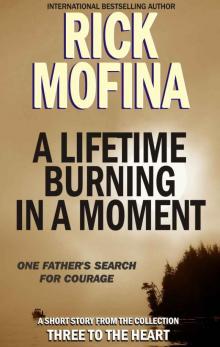 A Lifetime Burning in a Moment
A Lifetime Burning in a Moment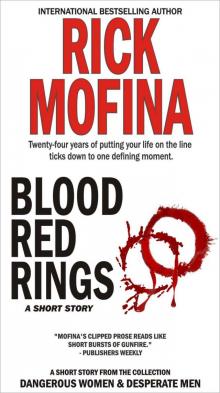 Blood Red Rings (Dangerous Women & Desperate Men)
Blood Red Rings (Dangerous Women & Desperate Men) As Long As We Both Shall Live (Dangerous Women & Desperate Men)
As Long As We Both Shall Live (Dangerous Women & Desperate Men)![[Tom Reed and Walt Sydowski 01.0] If Angels Fall Read online](http://i1.bookreadfree.com/i2/04/12/tom_reed_and_walt_sydowski_01_0_if_angels_fall_preview.jpg) [Tom Reed and Walt Sydowski 01.0] If Angels Fall
[Tom Reed and Walt Sydowski 01.0] If Angels Fall Cold Fear
Cold Fear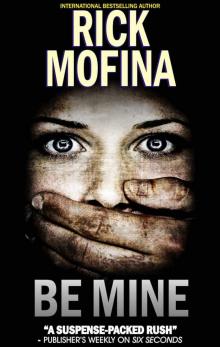 Be Mine
Be Mine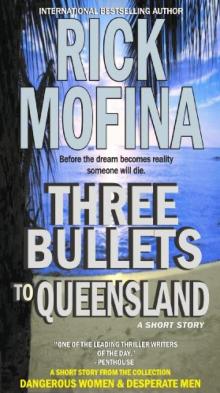 Three Bullets To Queensland
Three Bullets To Queensland